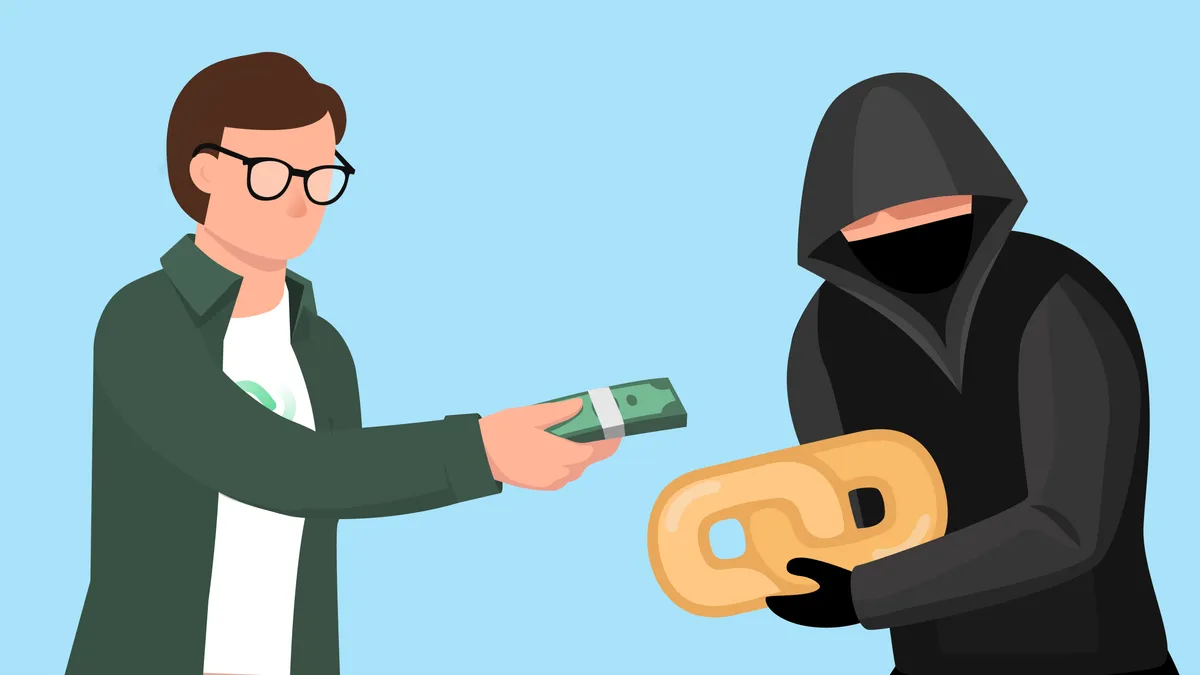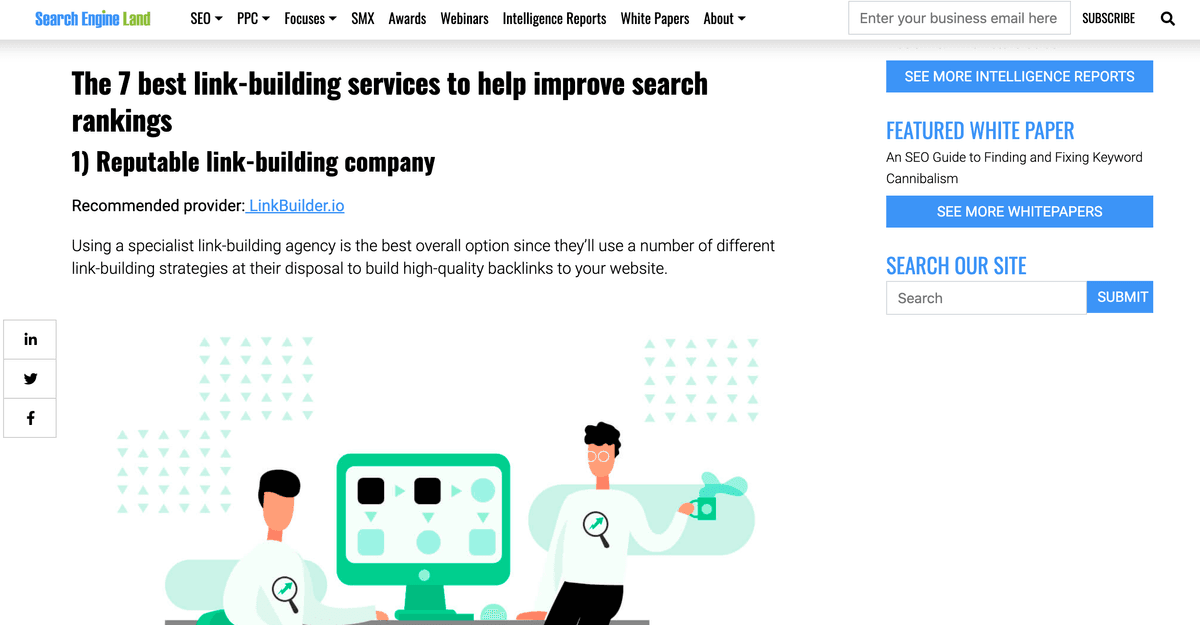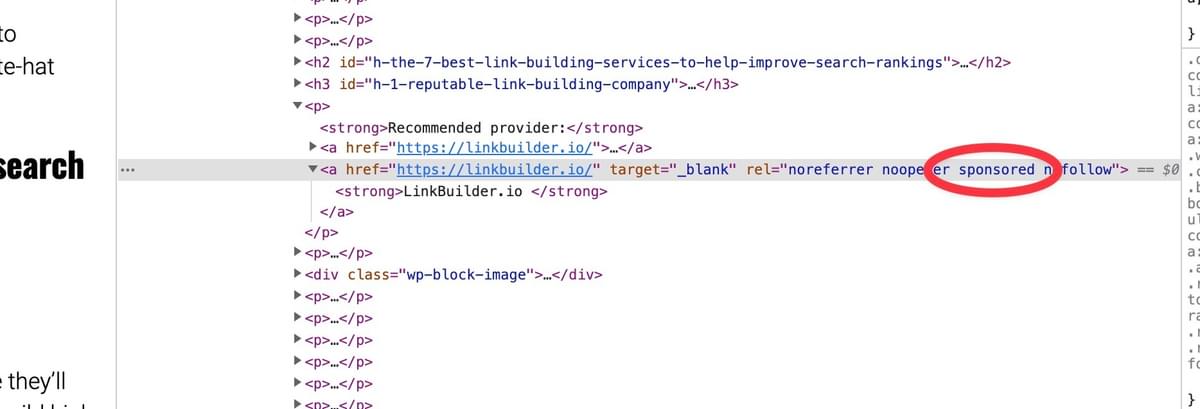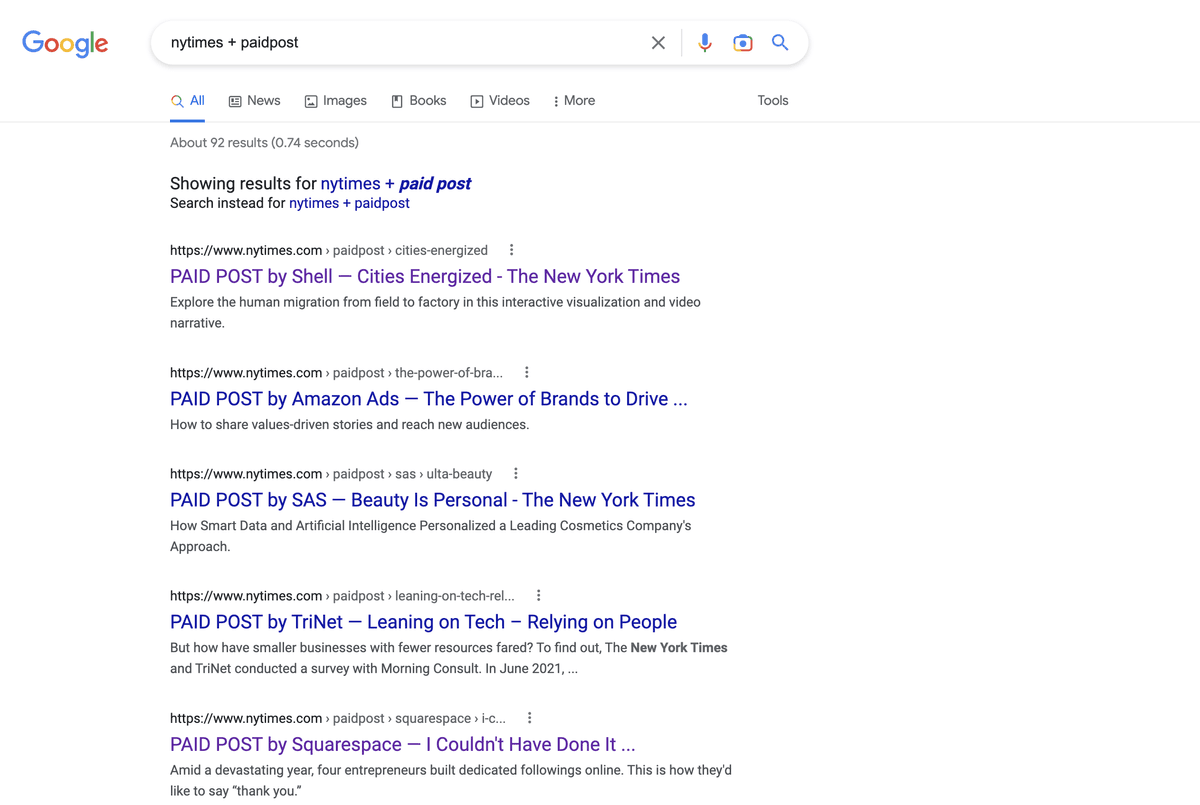
Should You Use Sponsored Links to Improve SEO?
We’ve already written about why link building is an integral part of a successful SEO campaign.
But, what are sponsored links and where do they fit into your link-building strategy?
In this article, we cover everything you need to know about sponsored linking—from how they could help your search engine marketing efforts to whether they’re worth investing in..
Key Takeaways
Sponsored links are the same as paid links and are represented by the tag, rel=“sponsored”
In 2005, Google added the sponsored and user-generated content (UGC) attribute to the “nofollow” tag.
Sponsored links are not a direct ranking factor and will not significantly affect your page’s SEO rankings.
A Quick Trip Back in Time
Before we take a closer look at what sponsored links are, you need to understand how they came about.
When marketers first started outsourcing SEO, many of those services realized that they could gain effective links by:
- Adding spam comments to a blog post.
- Placing links on websites that allowed user-generated content.
Google then introduced the “nofollow” attribute to help combat this type of comment spam in 2005.

Nofollow links signal to search engines that they should ignore the link and not attribute any PageRank to it.
This means that the destination URL doesn’t get a boost in its search engine rankings.
This was a welcomed change because it prevented Google from indexing and crawling untrustworthy links that webmasters didn’t want to be associated with their site.
However, this update categorized all paid links as “nofollow,” which meant that search engines couldn’t separate advertising links from untrustworthy ones.
Introducing the Sponsored Link Attribute
This is why Google announced that the “nofollow” attribute would receive two important additions—the sponsored and “UGC” attribute—in 2019.
The UGC attribute was designed to help Google identify links that are generated by users. This includes links for articles or blog comments, as well as those created in forum posts.
These new attributes allowed search engines to provide better clarity over a link’s intent and category—instead of marking them all as “nofollow” links that should be ignored.
💡Here’s How Webmasters Show Which Link Attributes They’re Using:
💡Here’s How Webmasters Show Which Link Attributes They’re Using:
1️⃣ “Nofollow” links: rel="nofollow"
2️⃣ Sponsored links: rel=“sponsored”
3️⃣ User-generated links: rel=“ugc”
How Do Sponsored Links Affect Link Building?
Although they were not used for crawling and indexing before, Google’s update in 2020 indicated that “nofollow,” "sponsored", and UGC links would be used as a “hint” going forward.
While sponsored links may be crawled, they are not a direct ranking factor and will not significantly affect your page’s SEO rankings.
Not only does the rel=“sponsored” tag show Google’s algorithm that you paid for the content, but it also prevents the post from passing on any “link juice” to your site.
However, Google does indicate that it provides a "hint" so there may still be some benefit to earning links that have the sponsored tag on from high-profile websites.
What is link juice?
Link juice—also known as link equity—is the name given to the value or authority a page passes on when it links to another page.
Sponsored Link Example
We recently decided to pay for an advertorial on a popular SEO blog, promoting our link-building services, which you can see below.

However, the website in question made it clear to us that all outbound links would include the rel="sponsored" tag, which means that any SEO benefit from having this link was mostly nullified.
Below, you can see how they added this to the outbound link pointing to our website.

In a situation like this, we don't care that the website in question added the sponsored tag. We didn't buy this sponsored post for the power of the backlink, we did it because of the referral traffic it generates for our business.
Hundreds of companies do the exact same thing every day!
If you Google "NYTimes + Paid Post" you'll see countless examples of brands who have paid for featured placements on the New York Times.

Want to know the funniest part?
Even the New York Times are not adding rel="sponsored" tags to the outbound links on their sponsored posts!
This means if you have the budget and are willing to pay for a sponsored article on the New York Times, chances are that backlink from them to your website will carry a ton of weight and authority.
Many people in SEO do this kind of thing and nowadays, Google has seemingly given up on punishing people for buying links according to SEO Chatter.
Will I Get Penalized for Using Sponsored Links?
No, you won't.
The sponsored link tag was introduced by Google to prevent you from getting penalized, and to allow for the 'legitimate' purchasing of paid links on third-party websites. So what Google is essentially saying, is that if you're paying for a link or advert on another website, then you must use this sponsored tag.
On their website it says, “Buying or selling links that pass PageRank is in violation of Google's Webmaster Guidelines and can negatively impact a site's ranking in search results.”
However, Google also recognizes that not all paid links violate their guidelines.
When it's done for advertising purposes and not for the manipulation of search results, webmasters will be able to avoid penalties.
This is why it’s best practice to include the rel=“sponsored” or “rel=“nofollow” tags when publishing sponsored links.
This gives Google absolute clarity over what your sponsored links are used for and will ensure you don’t pass any link juice to a site that’s incentivizing you to link to them.
Should I Use the Sponsored Links Tab?
The truth is, most websites and SEO practitioners buy backlinks all the time.
The problem with including a sponsored tag in any link you purchase is that the link automatically becomes devalued.
For this reason, most SEO's don't want the website they're publishing on or paying to include a rel="sponsored" post, because as we've already explained, Google mostly disqualifies any such links from their ranking factors.
Our advice would be to leave it to the discretion of the website you're getting a link from.
The vast majority of publishers (including the New York Times, as we've already seen) won't even bother adding a sponsored tag to outbound links.
9 times out of 10, they're just not going to add in that tag, and so you're still going to get the full benefit of the backlink.

